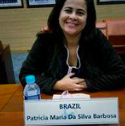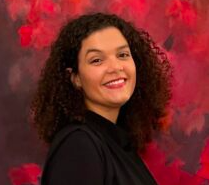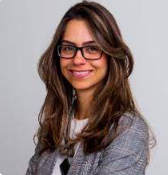
- This project has passed.
Empowering Perspectives: Unpacking the Brazilian Industrial Property Law
Brazilian LPI Insights
Location:
Online
Type:
Panel discussion
Speakers

Ana Cláudia Mamede Carneiro
Partner at Dannemann; Chemical Engineer; Industrial Property Agent.

Renata Angeli
Professor at the University of the State of Rio de Janeiro (UERJ); Technology Board Advisor at the Carlos Chagas Filho Foundation for Research Support of the State of Rio de Janeiro (FAPERJ); Researcher and Consultant in Innovation, IP, Entrepreneurship, and Startups.

Tayna Carneiro
Forber BLK; co-CEO Future Law; Ph.D. Candidate at the University of São Paulo (USP); Co-organizer of the Book "Comments on the Brazilian Industrial Property Law by Women".

Patrícia Barbosa
Professor at the Academy of the Brazilian Patent and Trademark Office (BPTO); Examiner of Geographical Indications and Trademarks, including Collective and Certification at the BPTO; PhD in Innovation and IP.

Flavia Mansur Murad Schaal
Founding Partner at Mansur Murad; PhD in IP Law at Lorraine University; Coordinator of the Intellectual and Digital Property Center of CEU LAW SCHOOL; Professor at Santa Marcelina College (FASM) and at the Brazilian Association of Industrial Property Agents (ABAPI).

Aline Ferreira de Carvalho da Silva
Senior Lawyer; LL.M. in IP at Cambridge University; Coordinator of the Legal and Regulatory Affairs Committee at the Brazilian Pharmaceutical Innovation Network (RBIF); Member of the Cultural Board of the São Paulo Intellectual Property Association (ASPI).

Pietra Quinelato
Ph.D. Candidate at University of São Paulo (USP) and Panthéon-Sorbonne; Researcher at the Institute de Recherche Juridique de la Sorbonne (IRJS); Member at the Tech Law Committee at the São Paulo Institute of Lawyers (IASP); Professor at Campos Salles College; Senior Associate Lawyer at Mansur Murad.

Thais Castelli
Ph.D. and master’s in International Economic Relations Law at PUC/SP; has developed her career as legal manager at Brazilian companies (Natura and Sadia), dedicated to the internationalization process to structure business abroad; Partner at Castelli&Castelli law firm, for the international legal assistance; Adjunct Professor at the Getúlio Vargas Foundation University (FGV) in São Paulo/Brazil, in MBA´s courses; Author of books and articles on IP, such as "The territoriality principle in IP " (Quartier Latin, 2006); and "The global protection of IP in the digital era " (Jurua, 2018)”; and "International Aspects and the Territoriality Principle” (2023, collective book).

Karin Klempp Franco
Partner at Cascione; Director at the Mediation Chamber of the Brazilian Association of Industrial Property (ABPI); Professor at Campinas Universities (FACAMP); Arbitrator at the Brazilian Center for Mediation and Arbitration (CBMA); Ph.D. in Commercial Law at the University of São Paulo (USP).

Debora Lacs Sichel
Founding Partner at Hanewald, Natividade & Sichel; Adjunct Professor at the Federal University of the State of Rio de Janeiro.

Débora Vicente
LL.M. in Law and Economics, specialization in the economic analysis of IP and Innovation, at the European Master in Law and Economics (EMLE); Advisor in IP and Competition Law; Board Member of the Interest Group on IP of UFRJ (LAPI).

Ana Carolina de Azevedo
Lawyer at Gusmão & Labrunie Advogados; Postgraduate degree in IP and new technologies at the Fundação Getulio Vargas (FGV).

Jéssica Pinheiro Oyarzábal
Partner at SKO OYARZÁBAL Trademarks and Patents, Head of the International Department; Master of Laws, specialized in Copyright and Industrial Property at the Federal University of Rio Grande do Sul (UFRGS); President of ABAPISUL for the biennium 2022-2023.
YSI Presenters
Description
Series of Webinars based on the book “Comments on the Brazilian Industrial Property Law by Women“, published in November by Thomson Reuters. Follow this link to register.
I. Introduction
The Brazilian Industrial Property Law (commonly known as “LPI”) came into force in 1996. Since then, many disruptive innovations, the possibility of economic growth, and different interpretations of collective interest have constantly challenged this legislation, which intrinsically carries economic effects. For example, there is plenty of room for discussion about:
- the protection and liability of artificial intelligence;
- the role of the State in assessing and applying the collective interest through its capacities and institutions; and
- how private initiative and partnerships between public and private stakeholders can leverage the economy through the management of intellectual assets.
In order to broaden these discussions, it is first necessary to understand what the law says.
The book “Comentários à Lei da Propriedade Industrial por Mulheres” (which in English would translate as: “Comments on the Brazilian Industrial Property Law by Women”) was recently released by Thomson Reuters Brazil. Written by sixty-six Brazilian women authors, the book contains more than forty chapters on this law.
This series of webinars aims to bring together some of these authors to summarize the Brazilian scenario in terms of the protection of intellectual assets and talk about the challenges of carrying

